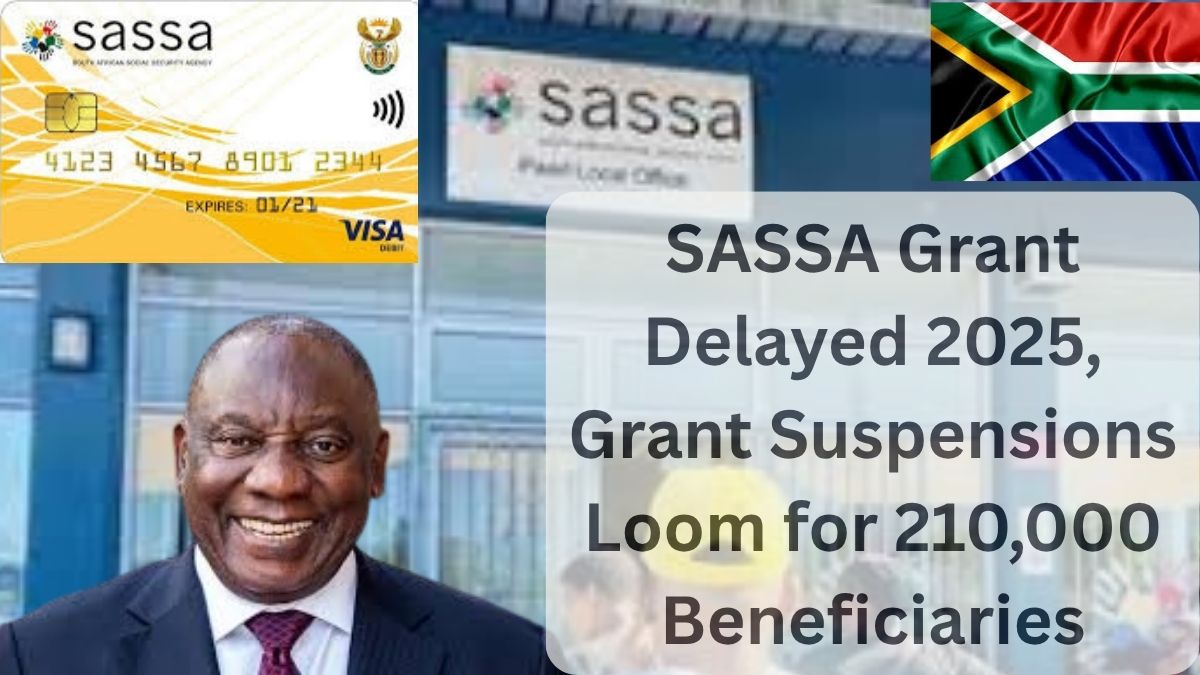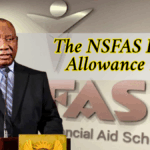In June 2025, the South African Social Security Agency (SASSA) will temporarily halt grant payments for over 210,000 recipients. This suspension is part of an intensified effort to enforce income disclosure regulations and prevent fraudulent claims. While South Africa supports approximately 19 million individuals monthly through various social grants, those affected have been flagged for failing to update or disclose changes in their financial status.
The move is a result of a new verification initiative involving credit bureaus and financial institutions. By cross-checking beneficiary records, SASSA identified discrepancies suggesting that some recipients may no longer meet eligibility criteria.

Summary Table
| Key Details | Information |
|---|---|
| Issue | Delay in grant payments for 210,000 beneficiaries |
| Reason | Suspected non-compliance with income reporting regulations |
| Verification Method | Cross-checking income data with Credit Bureaus and banks |
| Legal Basis | Social Assistance Act and Regulation 30 |
| Action Required | Beneficiaries must visit SASSA offices within 30 days |
| Risk of Non-Compliance | Suspension or termination of grants |
| Grant Payment Dates (June 2025) | Older Persons: 3 June; Disability: 4 June; Children’s Grants: 5 June |
| Official SASSA Website | https://www.sassa.gov.za |
Background: Why Are Payments Being Delayed?
The delays stem from SASSA’s latest compliance audit, conducted in collaboration with registered credit bureaus. The objective was to verify whether current grant recipients still qualify under the Social Assistance Act, particularly in terms of their financial disclosures.
During the audit, SASSA discovered that many individuals who initially qualified for grants had failed to:
-
Declare additional sources of income
-
Report newly opened bank accounts
-
Update personal or financial details post-application
The presence of unreported income or assets automatically places their eligibility into question. As a result, the agency is pausing these payments pending full review.
Legal Framework: The Social Assistance Act and Regulation 30
SASSA is acting under the authority granted by the Social Assistance Act and Regulation 30, which outlines strict compliance requirements for grant recipients. These rules are not new but are now being more rigorously enforced.
Core Compliance Requirements
| Requirement | Details |
|---|---|
| Income Disclosure at Application | All income must be declared when applying for a grant |
| Update on Financial Changes | Any changes in income must be reported promptly |
| Bank Account Declaration | All active and new accounts must be disclosed |
| Participation in Reviews | Recipients must attend scheduled verification or review processes |
Failure to comply with any of these requirements can result in a delay, suspension, or even permanent termination of the grant.
SASSA’s Enforcement Process: What Beneficiaries Must Do
Affected individuals have been notified by SASSA and are required to report to their nearest office within 30 days. During this visit, they must:
-
Provide valid ID documents (preferably the smart ID card)
-
Submit recent bank statements or proof of income
-
Clarify any discrepancies in their application or financial history
If a beneficiary does not respond or fails to meet verification standards, the grant may be permanently revoked.
SASSA also warns that deliberate withholding of financial information can lead to legal action.
Combatting Fraud and Ensuring Integrity
This initiative is part of a broader campaign by SASSA to maintain the integrity of the national grant system. The agency has committed to rooting out both external and internal fraud.
Key Measures:
-
Internal Disciplinary Action: Any SASSA employee found colluding with beneficiaries to defraud the system will face disciplinary and legal consequences.
-
Data Integration: Enhanced coordination with banking institutions and government databases to detect anomalies in financial declarations.
These steps are essential to reduce fiscal leakage and ensure that grants reach only those who genuinely need them.
ID Upgrades: Transition from Green Barcoded Books to Smart ID Cards
SASSA has also emphasized the importance of upgrading identification documents. The older green barcoded ID books are now considered a security risk and may slow down verification procedures.
Recipients are encouraged to apply for the smart ID card through the Department of Home Affairs. These cards streamline integration with digital verification systems and enhance identity protection.
Permanent SASSA Grants and Their Purpose
SASSA manages various permanent grant categories that support vulnerable groups:
| Type of Grant | Purpose |
|---|---|
| Older Persons Grant | For individuals aged 60 and older |
| Disability Grant | Support for those living with disabilities |
| War Veterans Grant | Assistance to ex-military personnel |
| Child Support Grant | Aid for low-income families raising children |
| Foster Child Grant | Support for fostered minors |
| Care Dependency Grant | For children with permanent disabilities |
| Grant-in-Aid | For beneficiaries needing full-time care |
| Child Support Grant Top-Up | Additional aid for deeply impoverished children |
These grants form a vital component of South Africa’s social support framework and are central to reducing poverty and inequality.
Confirmed June 2025 Payment Dates
SASSA has released the official payment schedule for June 2025. Beneficiaries not affected by the compliance delays can expect disbursements as follows:
-
Older Persons Grant: Tuesday, 3 June 2025
-
Disability Grant: Wednesday, 4 June 2025
-
Children’s Grants: Thursday, 5 June 2025
Only the flagged beneficiaries will experience delays until their verification is complete.
What Beneficiaries Should Do Next
To maintain uninterrupted grant access:
-
Visit Your Local SASSA Office – Carry valid identification and financial records.
-
Disclose Financial Updates – Inform SASSA of any new sources of income or assets.
-
Update Contact Details – Ensure your mobile number and residential address are current.
-
Switch to a Smart ID – Replace your green ID book with the smart ID card.
By staying proactive and transparent, beneficiaries can protect their eligibility and contribute to the integrity of the system.
FAQs
1. Why is SASSA delaying payments for some beneficiaries?
SASSA identified discrepancies in income disclosure and is temporarily suspending payments for over 210,000 recipients pending further review.
2. What do I need to bring to the SASSA office?
Bring a valid smart ID, proof of income (e.g., bank statements), and any other documents requested in your notice.
3. What happens if I don’t respond within 30 days?
Your grant may be suspended or terminated if you fail to comply with the verification process.
4. Will this affect all grant recipients?
No. Only recipients flagged for income or information discrepancies are affected. Most grants will be paid on time.
5. How do I get a smart ID?
Apply for one at your nearest Department of Home Affairs office. Visit https://www.dha.gov.za for more details.
Final Thoughts
This compliance drive marks a turning point in how SASSA manages public funds. While it creates short-term disruptions, the long-term goal is to foster a more transparent, efficient, and fraud-resistant welfare system.
Beneficiaries must take responsibility for keeping their financial and personal records updated. Doing so not only protects their access to grants but strengthens the overall credibility of South Africa’s social assistance programs.
For updates, visit the official SASSA website.
Click here to know more



